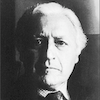- 04 Sep 2007 11:53
#1314709
I understood your question. If you look at the idea how Hitler brainwashed German people without historical and social conditions you will think that a guy who gets 40 pecent votes, you can say can become a dictator if they want. When he came to power, Germany was in very weak conditions, and there was too much poverty. The reason was Versailles Treaty, peace treaty after Germany made accepted and the most important of its factories were in France's hands and it was a very heavy peace treaty. European leaders say afterwards, peace treaties has caused war so after 2nd World War, treaties' conditions were much more lighter. ( Peace treaty Sevres, caused an independence war in Turkiye and Kemalists tore it, and signed Lausenne.) So in these conditions, he made propaganda against French, Jews (who people were jealous cause they were making trade and were rich) and many poor people supported him. Also, Goebells known as one of the best propagandist in World, was his right hand, and he achieved a very huge industrilisation with an authoritirian regime economically also.
Bolsheviks were only 100.000 in Russia, but they were called as proffesional revolutioners, who didn't have any other job like their political rivals, Mencheviks so 100.000 professional revolutioner makes a huge difference and they gained prestige with the propaganda for people and Russia not to join war cause it is for imperialist interests. People were poor and char didn't have any prestige anymore, and this was very affectful to defeat their rivals. There were also many soldiers (first rebel starts with Potemkin ship, the movie POtemkin Battleship), and there was also a big renaissence behind it. (many nihilists, anarchists and socialist writers)
So, usually, these kind of alternative regimes are usually in the unusual conditions, where systems have lost its prestige and can't feed its people.
Bolsheviks were only 100.000 in Russia, but they were called as proffesional revolutioners, who didn't have any other job like their political rivals, Mencheviks so 100.000 professional revolutioner makes a huge difference and they gained prestige with the propaganda for people and Russia not to join war cause it is for imperialist interests. People were poor and char didn't have any prestige anymore, and this was very affectful to defeat their rivals. There were also many soldiers (first rebel starts with Potemkin ship, the movie POtemkin Battleship), and there was also a big renaissence behind it. (many nihilists, anarchists and socialist writers)
So, usually, these kind of alternative regimes are usually in the unusual conditions, where systems have lost its prestige and can't feed its people.
turkiye,istanbul politics student
















 - By KurtFF8
- By KurtFF8